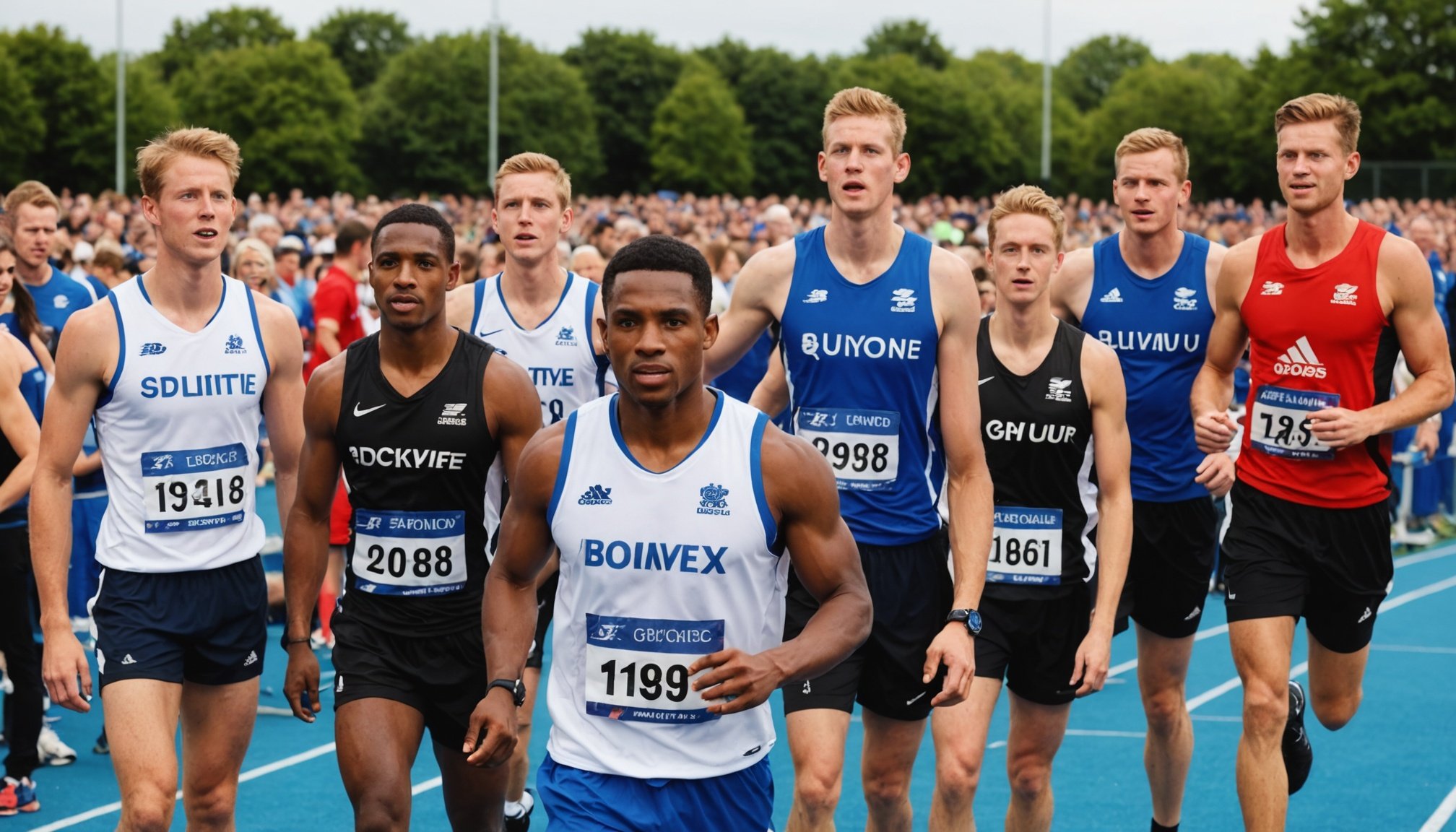In today’s competitive landscape, the success of athletes in the UK is influenced by various factors, many of which extend beyond training and natural talent. Among these factors, the role of community support systems stands out as a crucial aspect that can significantly impact athletes’ performance and overall well-being. This article explores how social, psychological, and physical support from the community helps foster an environment conducive to athletic excellence. Understanding these dynamics not only highlights the importance of community in sports but also emphasizes how a collective effort can lead to improved outcomes for athletes.
The Role of Community in Athletic Performance
Community plays a vital role in shaping the performance of athletes. It provides a network of support that can enhance both physical and mental capabilities. When athletes feel connected to their community, they often experience heightened motivation and commitment to their sport. This connection can manifest through various forms of sports organizations, local clubs, and schools that foster an environment of encouragement and collaboration.
Also read : What strategies can coaches implement to develop resilience in young athletes?
Regular interaction with fellow participants can lead to beneficial training opportunities, sharing of resources, and collective experiences that add to an athlete’s journey. Studies have shown that athletes who engage with their community report higher levels of perceived support, which correlates with improved performance metrics. This support can come from coaches, family, friends, or even spectators cheering from the sidelines.
Furthermore, the social aspect of community involvement can enhance an athlete’s sense of belonging. When athletes know they have a supportive network, they are more likely to push through challenges and setbacks. The social ties formed within these communities provide emotional resilience that is crucial for success. Engaging with others who share similar goals fosters a sense of camaraderie and accountability, essential components for those striving for excellence in their respective sports. In short, a robust community support system not only uplifts athletes but also cultivates a culture of excellence and perseverance.
Also read : How can schools better integrate physical education into their curricula in the UK?
Psychological Benefits of Community Support
The psychological aspects of community support are profound and often underappreciated in the realm of sports. Athletes can face immense pressure and stress, both from competition and personal expectations. A strong community can serve as a buffer against these pressures, providing the mental and emotional support that athletes need to thrive.
Engagement with a supportive community can lead to a reduction in anxiety and stress levels, allowing athletes to focus better on their performance. When athletes know they have people rooting for them, they may feel more confident and less isolated in their struggles. This sense of belonging can lead to enhanced psychological resilience, enabling athletes to cope with failures and setbacks more effectively.
Moreover, community support systems can facilitate open discussions about mental health, encouraging athletes to seek help when needed. This normalization of mental health issues within sports promotes a healthier mindset and can lead to improved overall well-being. Importantly, when mental health is prioritized within athletic communities, it creates a more inclusive environment that values each athlete’s journey.
Research indicates that athletes who report feeling supported by their community are more likely to maintain a positive outlook on their sporting career. They are also better equipped to handle the ups and downs that come with competitive endeavors. By fostering an atmosphere where mental health discussions are welcomed, communities can play a pivotal role in nurturing not just successful athletes, but well-rounded individuals who are prepared for life beyond sports.
Physical Support: Facilitating Training and Development
The physical support offered by community networks significantly impacts the training and development of athletes. Local facilities, training groups, and access to coaches are fundamental components that can either make or break an athlete’s journey.
Having access to proper training facilities and equipment is often a challenge, especially for those at the grassroots level. Community support can bridge this gap by providing resources that might not be available to individual athletes. For instance, local clubs and sports organizations may offer shared resources such as gym space, coaching, and training programs tailored to various skill levels. This collaborative approach fosters an environment where athletes can develop their skills effectively while also building relationships with coaches and peers.
Additionally, community initiatives aimed at promoting physical activity can directly influence the participation rates among young athletes. Programs that encourage youth engagement in sports can lead to a stronger pipeline of talent, as more individuals become involved in physical activities from an early age. Such initiatives not only enhance the skills of the participants but also instill a sense of discipline and commitment, traits that are essential for success in sports.
Moreover, coaches play a pivotal role in this physical support system. A knowledgeable coach can significantly impact an athlete’s development by providing tailored training regimens and constructive feedback. When communities prioritize the recruitment and training of skilled coaches, they help ensure that athletes receive the guidance needed to excel. This combination of resources, mentoring, and community engagement creates a conducive environment for athletes to thrive physically, ultimately leading to better performance outcomes.
Social Connections and Networking Opportunities
Social connections within the sports community can drastically enhance an athlete’s opportunities for growth and success. Networking plays a crucial role in identifying potential sponsorships, training opportunities, and competition entries. When athletes are actively engaged with their community, they are more likely to build relationships that can lead to further opportunities.
In today’s competitive sports environment, having connections can open doors that might otherwise remain closed. Community events, such as local competitions, workshops, and training camps, serve as platforms where athletes can meet industry professionals, coaches, and even sponsors. These interactions can lead to mentorship opportunities, which are invaluable for young athletes looking to navigate their careers.
Furthermore, social networks often provide insights into best practices, new training techniques, and mental conditioning strategies. Athletes can learn from one another’s experiences, share advice, and work collaboratively to improve their skills. This exchange of knowledge fosters an environment of continuous improvement, critical for maintaining a competitive edge.
Lastly, the power of community extends beyond immediate benefits. By establishing strong social ties, athletes can create lifelong connections that enrich their personal and professional lives. The relationships built through sports often translate into friendships and support systems that persist long after an athlete’s career has ended. Thus, the community is not just a support system for athletic endeavors, but a foundation for building a fulfilling life.
In conclusion, the influence of community support systems on the success of UK athletes is multifaceted and profound. From enhancing performance through social connections to providing psychological and physical support, communities play an essential role in shaping the journeys of athletes. By fostering environments that prioritize collaboration, mental health, and access to resources, we can ensure that athletes not only achieve their goals but also thrive as individuals.
As we move forward, it’s imperative that we recognize the significance of community in the world of sports. By cultivating these support networks, we can enhance the overall experience of athletes, encouraging them to reach their full potential while promoting a culture that values health and well-being. Understanding and investing in community support systems will ultimately lead to the development of successful athletes who are well-equipped to contribute positively to society.











